
CSRRP Huntap Pombewe Pipeline Network Leak Detection and Assessment
Technical Management Consultant (TMC-1) framework to conduct a comprehensive leak detection and repair prioritization assessment in Huntap Pombewe, Central Sulawesi.
Client: PT Ciriajasa Cipta Mandiri for Ministry of Public Works and Housing (PUPR), World Bank
Location: Huntap Pombewe, Sigi Regency, Central Sulawesi, Indonesia
Project Timeline: May 2024
Executive Summary
In 2024, SUPRA International, in collaboration with PT Ciriajasa Cipta Mandiri under the Technical Management Consultant (TMC-1) framework, was commissioned to support the Central Sulawesi Rehabilitation and Reconstruction Project (CSRRP). This initiative, funded by the Government of Indonesia and the World Bank, targeted post-tsunami housing infrastructure in Huntap Pombewe, Sigi Regency.
The mission was to conduct non-revenue water (NRW) diagnostics for a newly built piped water network serving hundreds of relocated families. SUPRA’s role was not to perform physical repairs, but to deploy AI-driven leak detection, geospatial analysis, and technical assessments to pinpoint leakage-prone locations and produce an actionable repair priority plan for government and contractor follow-up. Using NELOW M1 smart leak detection technology with GIS mapping, SUPRA provided decision-makers with high-accuracy data to guide remedial works, improve asset management, and protect the sustainability of the water system.
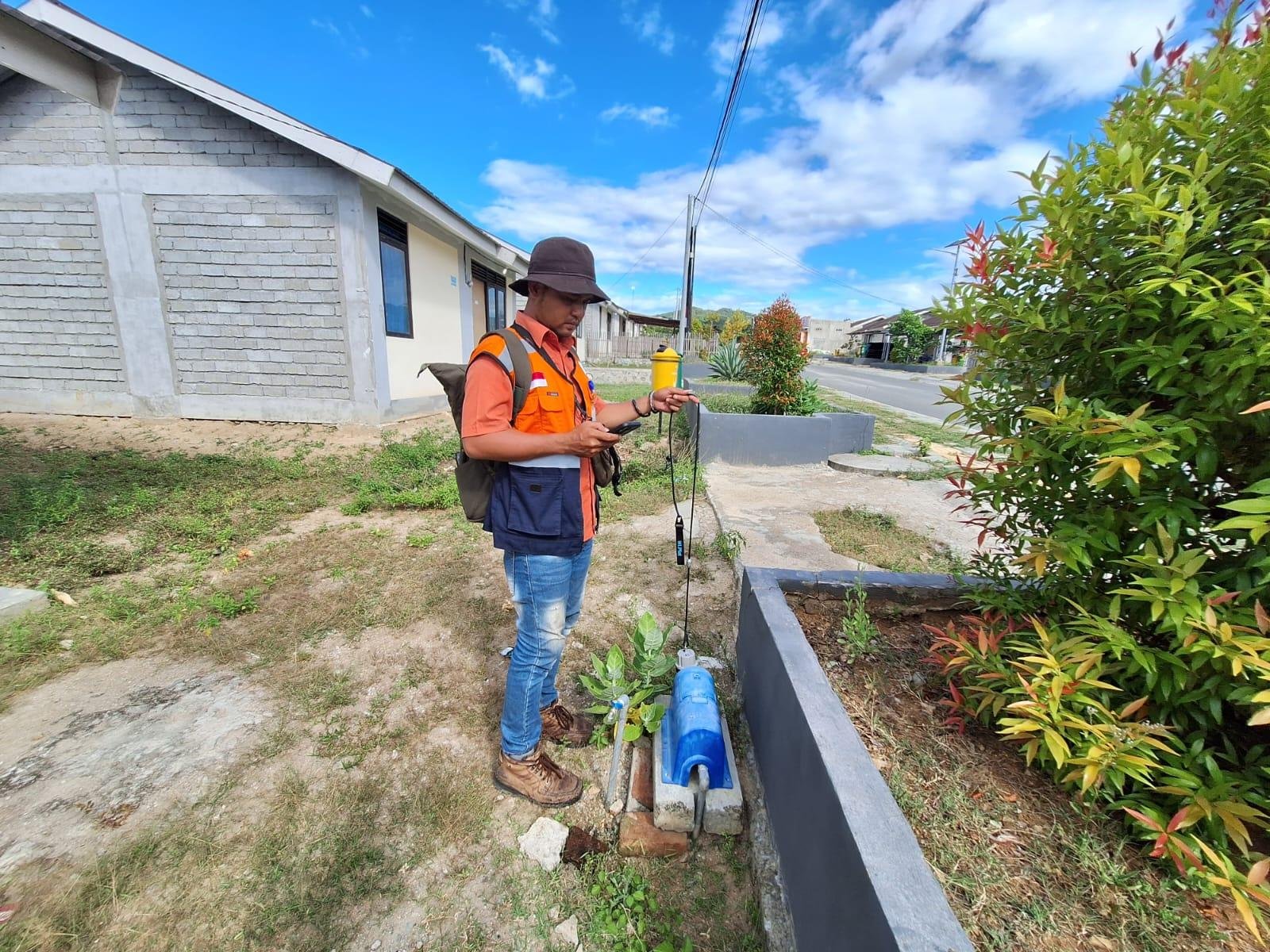
Project Context
After the 2018 earthquake and tsunami in Central Sulawesi, thousands of permanent housing units (hunian tetap) were constructed in Palu, Sigi, and Donggala. These new settlements included piped water systems designed to ensure long-term service reliability. In Huntap Pombewe, early signs of water losses appeared, with mismatches between bulk inflow and household consumption suggesting potential hidden leaks. The Ministry of Public Works and Housing (PUPR), supported by the World Bank, initiated a detailed diagnostic assessment to identify risk points before the problem escalated. SUPRA was tasked with delivering scientifically validated, data-backed leakage detection and mapping, enabling stakeholders to plan repairs strategically without unnecessary excavation or trial-and-error fieldwork.
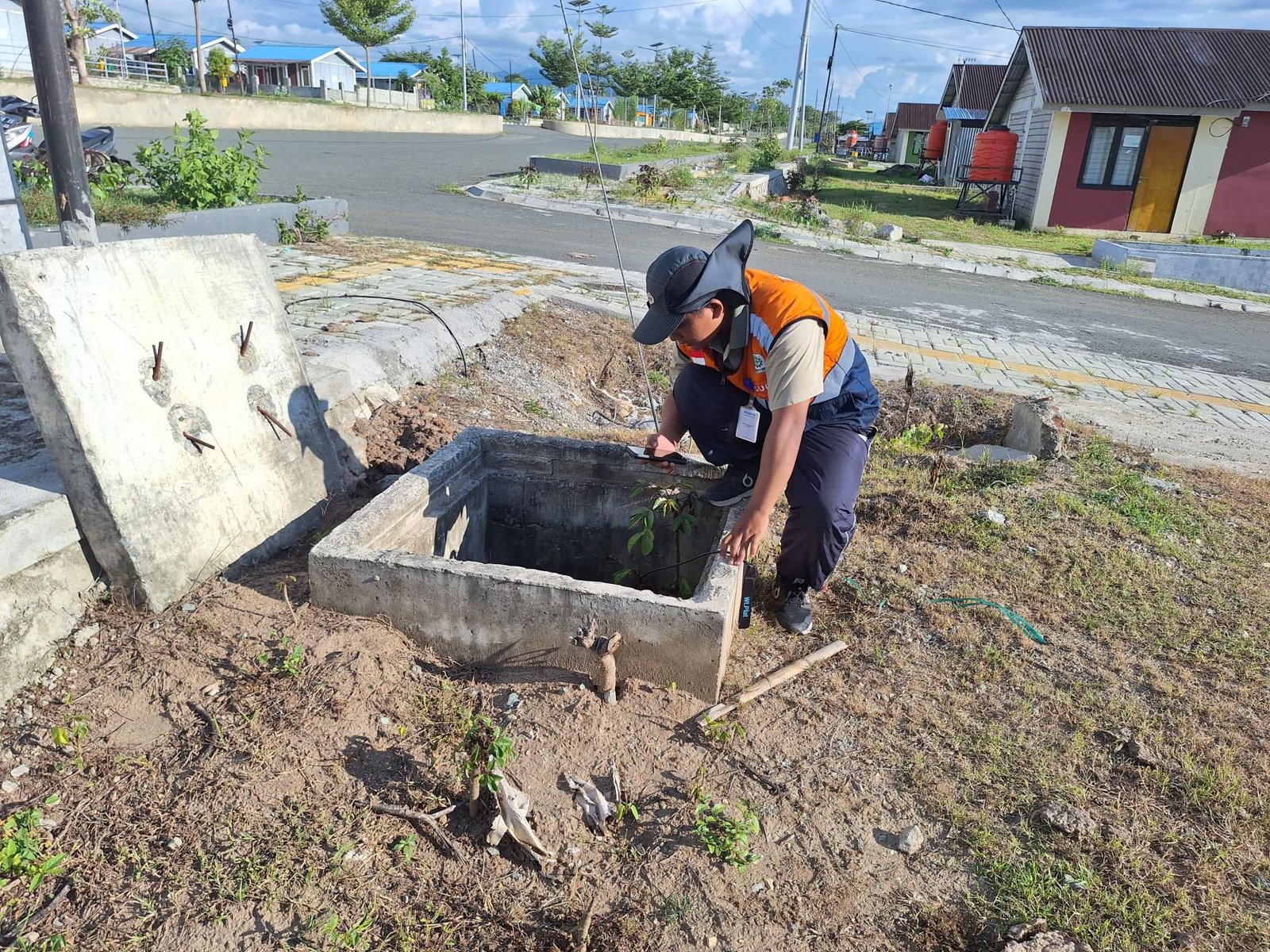
Challenges
- Incomplete as-built documentation for a recently constructed underground network.
- Post-disaster community sensitivities, requiring trust-building before field surveys.
- Coordination with multiple stakeholders, including PUPR, World Bank teams, contractors, consultants, and residents.
- Detecting leaks in a brand-new but vulnerable system, where excavation must be minimized.
- Translating technical findings into clear, actionable recommendations for policymakers and contractors.
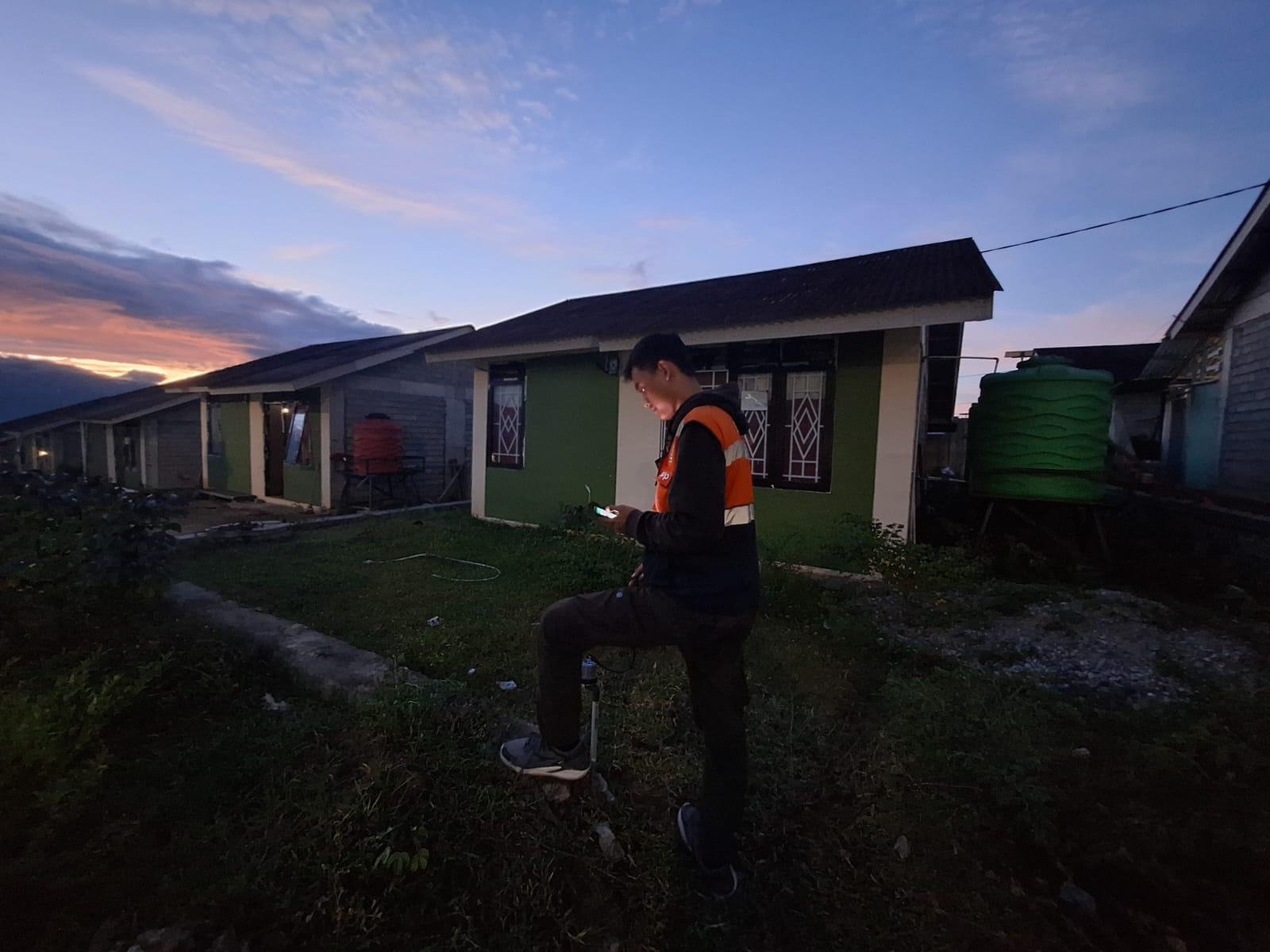
Approach and Methodology
SUPRA designed a structured methodology that balanced advanced technology with targeted on-site verification.
- AI-Powered Leak Detection: The NELOW M1 smart leak detection platform was deployed to collect and analyze hydraulic and pressure data from the network. Machine learning algorithms were used to model likely leak locations, producing a probability-based map of anomalies.
- GIS Integration and Asset Mapping: All findings were integrated into a Geographic Information System (GIS) to create precise spatial records of the water network and suspected leak zones. This not only improved accuracy for the current project but also filled critical documentation gaps for future maintenance.
- Targeted Field Verification: Instead of excavating large sections of pipeline, SUPRA conducted focused inspections using ground microphones, pressure loggers, and manual checks at high-priority locations identified by the AI models.
- Stakeholder Engagement and Communication: Continuous engagement with PUPR, World Bank representatives, and community leaders ensured transparency. Public briefings explained the purpose of the work, reducing potential resistance from residents.
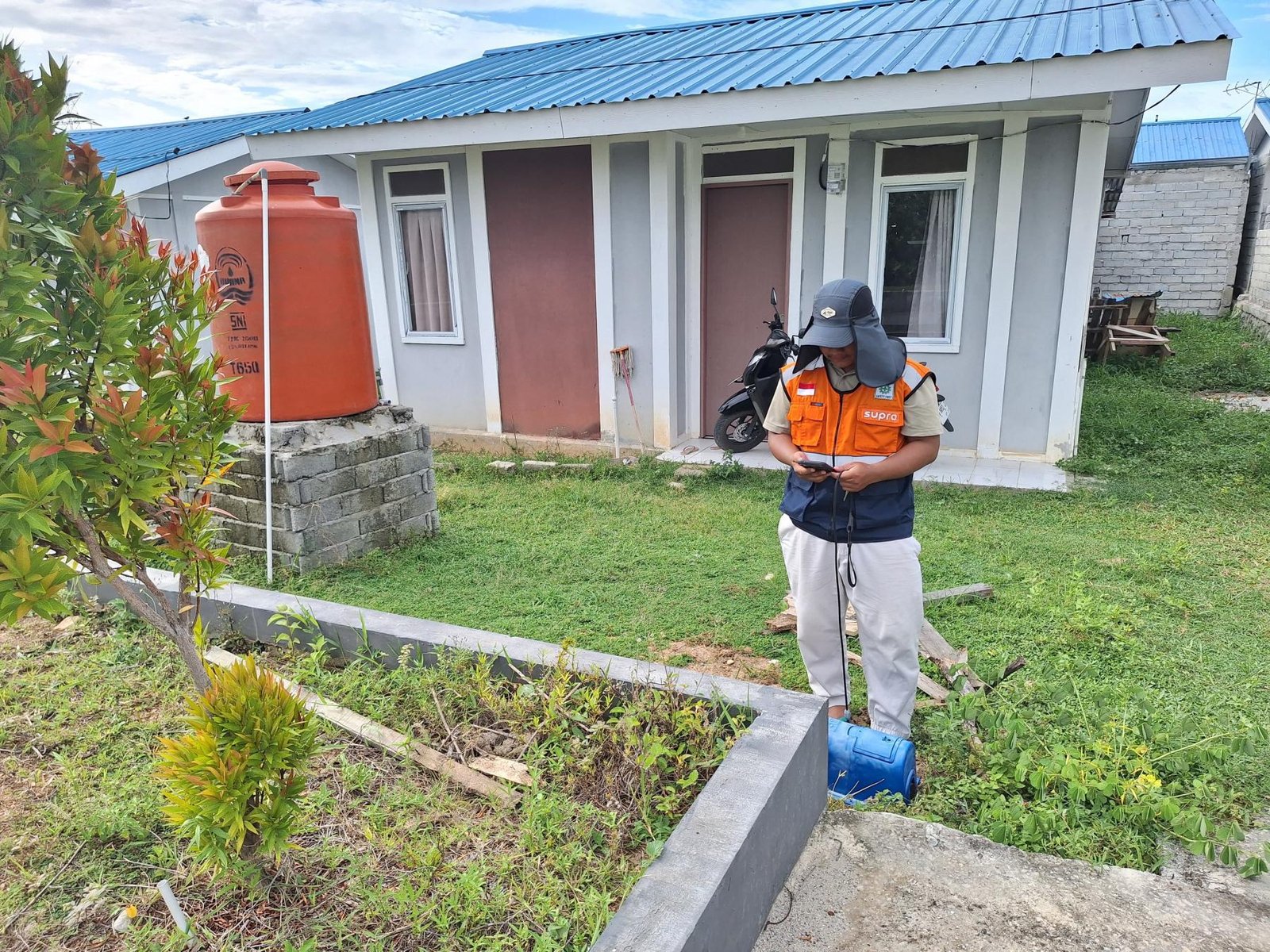
Findings and Results
- Multiple leak-prone points were identified, concentrated at junction boxes, meter fittings, and valve enclosures.
- Updated GIS maps provided a much-needed reference for underground infrastructure records.
- A prioritized list of leak locations allowed PUPR and World Bank teams to plan targeted, cost-efficient repairs.
- The project avoided unnecessary excavation, saving both time and budget while minimizing disturbance to residents.
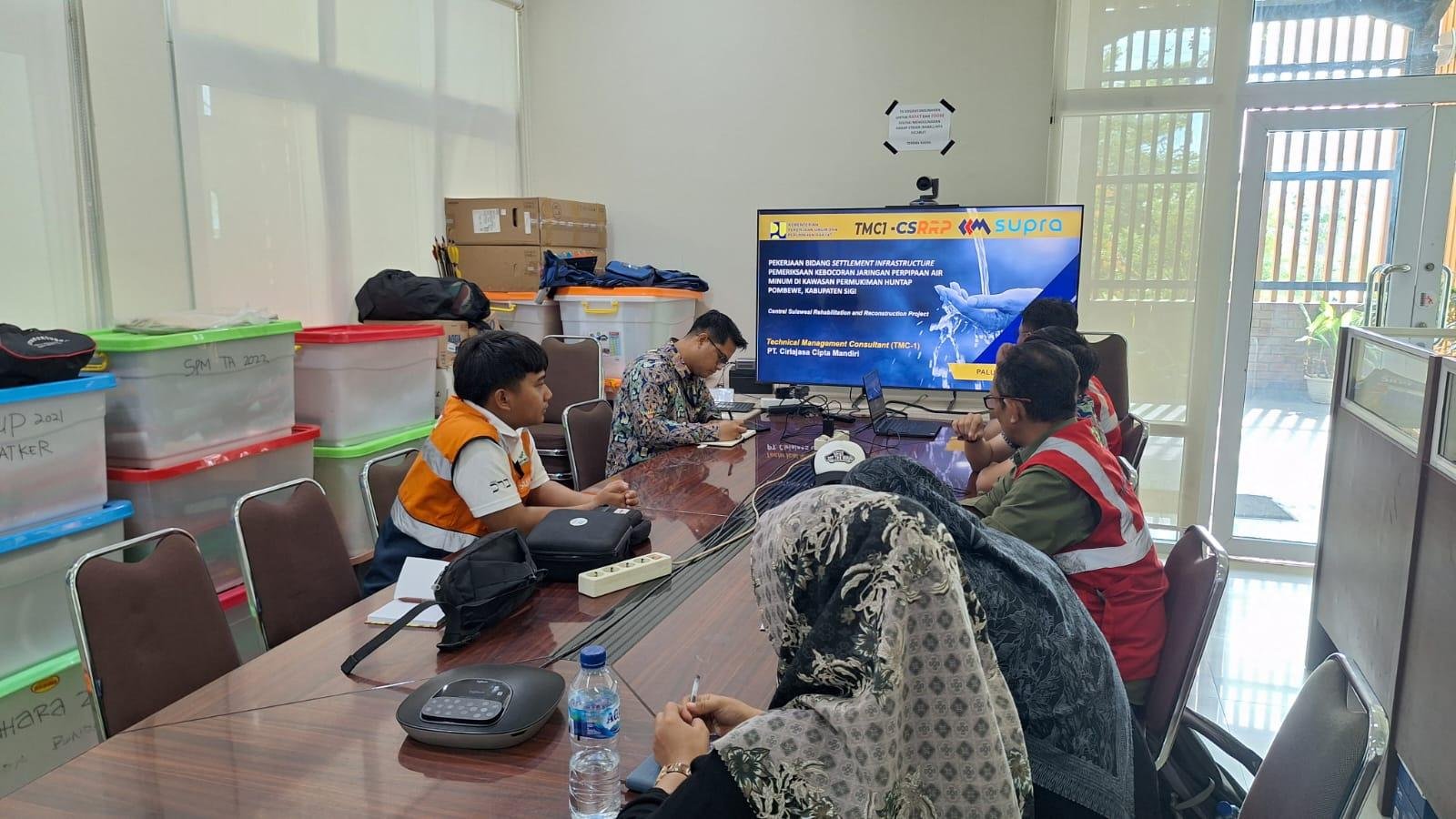
Strategic Impact
This project reinforced the value of combining data-driven diagnostics with traditional engineering methods, especially in post-disaster contexts. The benefits extended beyond Huntap Pombewe:
- Scalable Model: The methodology can be replicated in other resettlement areas such as Palu Barat, Petobo, and Donggala.
- Policy Influence: Demonstrated the effectiveness of AI-based leak detection for potential inclusion in future PUPR specifications.
- Capacity Building: Local technical teams received hands-on training, strengthening regional capabilities for ongoing NRW management.
- Sustainability: Protecting the integrity of the water network ensures the long-term viability of the settlement and supports community resilience.
Share:
If you face challenges in water, waste, or energy, whether it is system reliability, regulatory compliance, efficiency, or cost control, SUPRA is here to support you. When you connect with us, our experts will have a detailed discussion to understand your specific needs and determine which phase of the full-lifecycle delivery model fits your project best.

